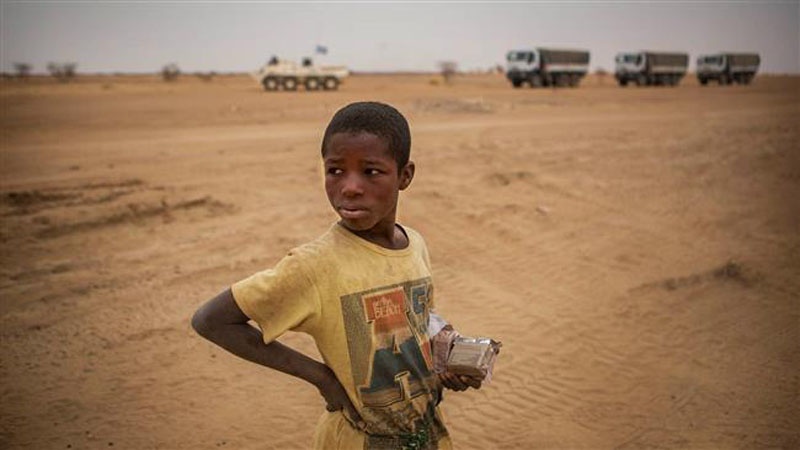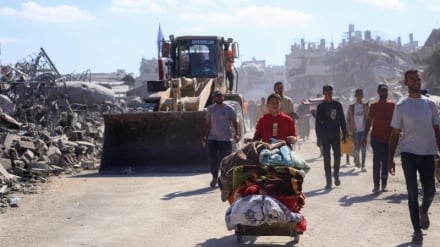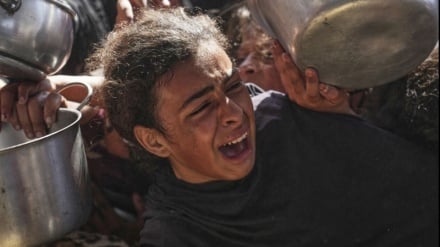Nutrition crisis deepening in Mali’s conflict-affected areas: UNICEF
The United Nations children's agency (UNICEF) has warned that the lives of tens of thousands of children in Mali are being threatened by acute malnutrition as violence and instability fuel a deepening nutrition crisis in the West African country.
In a report published on Monday, the agency said that an estimated 165,000 children were expected to suffer from severe acute malnutrition across Mali in 2018, up from a total of 142,000 registered this year.
The rate of acute malnutrition among under-five children in the conflict-ridden areas of Timbuktu and Gao has reached “critical” levels and above 15 percent on the World Health Organization’s classification scale, while the national rate also remains very high, according to the UNICEF report.
New government data also revealed that at least a tenth of children across Mali were suffering from global acute malnutrition.
“Behind these figures are the lives of the most vulnerable and forgotten girls and boys in Mali,” said UNICEF Representative Lucia Elmi in a press release.
“We must provide life-saving treatment and ensure each and every one of these children can fully recover. At the same time, we need to invest in the critical first 1,000 days of the lives of children to reduce the risk of acute malnutrition from occurring in the first place,” she added.
Children who suffer from the severe form of acute malnutrition have grave muscle wasting, very low weight for their height, and are nine times more likely to die in case of disease - such as diarrhea or malaria - due to a weakened immune system.
UNICEF also expressed alarm over the violence in northern Mali that has so far displaced tens of thousands of people, disrupted health services, hindered access to water and sanitation and left even more children at risk.
"Efforts need to be intensified to build the resilience of families through improved food security, prevention and treatment of severe acute malnutrition, access to water and sanitation," said Noël Zagré, a nutrition advisor with UNICEF.
SS



